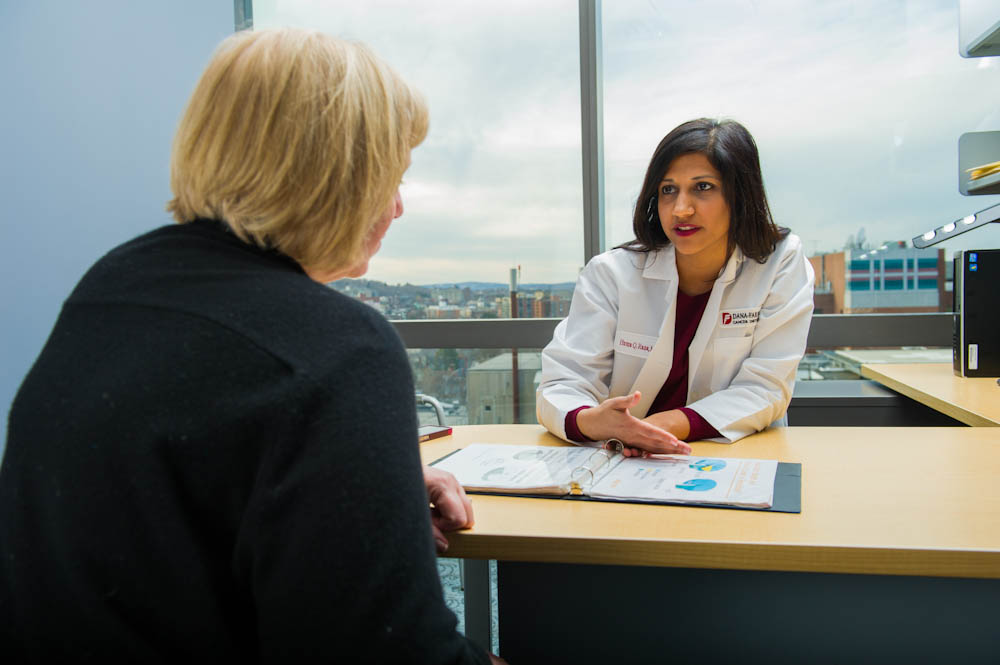Before any patient begins treatment for cancer, oncologists should discuss first- and second-degree family cancer history, according to new recommendations from the American Society of Clinical Oncology (ASCO). The ASCO recommendations, published recently, are the first to focus on family history and a person’s genetic risk of cancer.

“Genetic makeup is critical in the management of patients and treatment of cancer,” says Huma Rana, MD, a cancer geneticist with Dana-Farber’s Cancer Genetics and Prevention Program. “It also has implications for other family members and their potential risk.”
Approximately 5 to 10 percent of all cancers are inherited, Rana says. Evaluating patterns of cancer in a family may help doctors determine whether a patient has a predisposition to hereditary cancer and if he/she needs further genetic testing or counseling. Doctors can also use genetic results to help tailor treatments or survivorship plans.
First-degree relatives include parents, siblings, or children; second-degree relatives include grandparents, aunts/uncles, nieces/nephews, grandchildren and half-siblings. ASCO says doctors should focus on the family members’ type of primary cancers, the age of diagnosis, lineage (maternal/paternal), ethnicity, and results of genetic tests that have been done on other relatives.
Although Rana sees the recommendations as a good first step, she says it is also important for doctors and patients to discuss any rare cancers or cancer patterns in the family, even if they are in third-degree relatives, such as cousins or great-grandparents.
“At the very least, doctors should gather details on first- and second-degree relatives,” Rana says. “But there are many situations beyond first- and second-degree relatives where patterns of cancer can provide important information.”
For more information on genetic counseling and testing, visit Dana-Farber’s Cancer Genetics and Prevention Program website. If you have specific questions about hereditary cancers or genetic testing, the Dana-Farber cancer genetics team is available to answer your questions.
